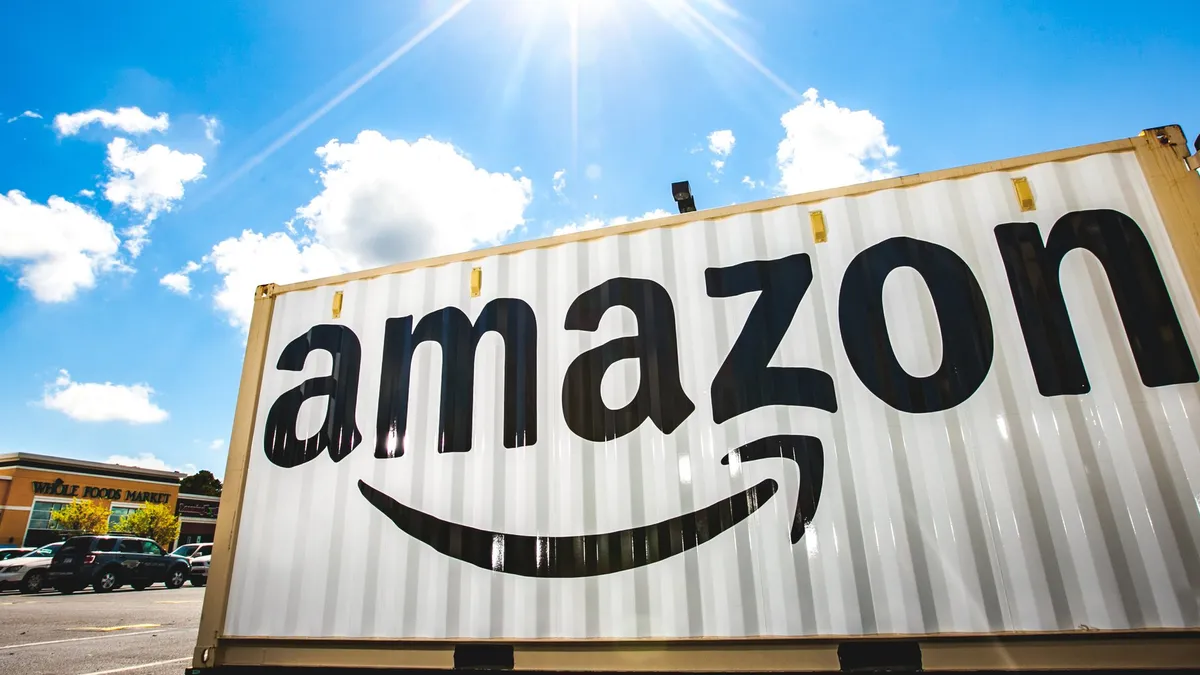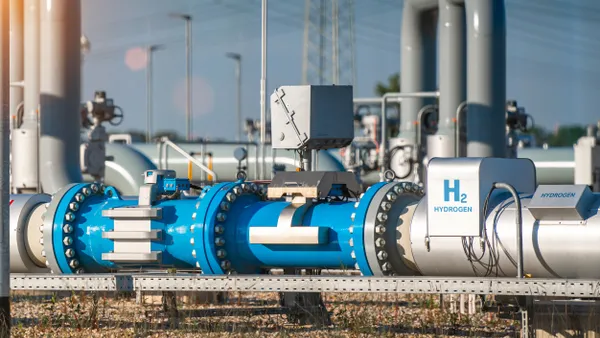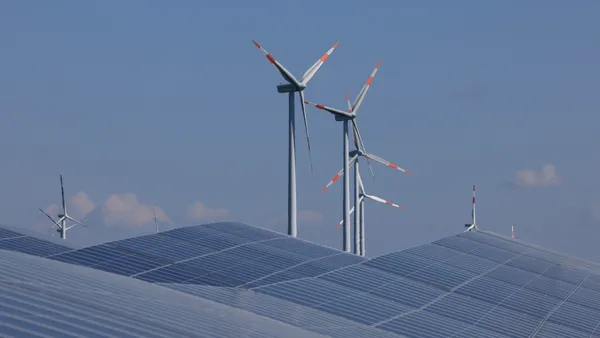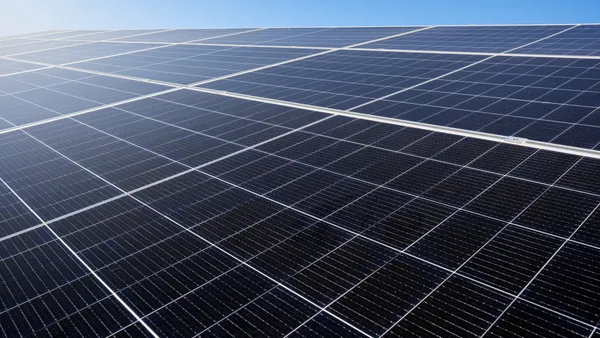Dive Brief:
- Amazon distribution centers in the U.K. are turning to solar energy and battery storage to help power their operations, continuing a trend of large technology companies pushing to reduce their carbon footprints.
- Solar Power Portal reported that Amazon has received approval to add a 3.6 MW solar array and battery storage at a facility in Leicestershire, following a similar 4 MW solar project developed with storage, at a facility in Tilbury, outside of London.
- Along with Amazon, big tech companies like Facebook, Google and Microsoft are all rushing to add clean energy. According to Bloomberg New Energy Finance, corporate purchases of clean energy have already set a new record this year.
Dive Insight:
Corporations are investing in clean energy at an unprecedented pace, BNEF reported back in August. At that time, purchasing had already exceeded 7 GW for the year and was headed higher — though it had already topped 2017's corporate purchases by almost 2 GW.
Facebook has made the largest purchases of clean energy so far in 2018, BNEF said, and as interest grows among the tech sector and other corporations, the trend is expected to continue.
More than 100 companies have signed 100% renewables pledges. In order to meet their targets by 2030, BNEF estimates they will need to purchase another 197 TWh of clean energy.
While the size of Amazon's newest battery buy is not clear, Solar Power Portal estimates it is about half the size of a roughly 4 MW battery at Amazon's location outside London. The system is expected to produce about 3 million kWh/year — about a third of the location's demand, according to the solar news site.
Google has also been a leader on the corporate renewable energy front.
Last month, the internet search giant examined the energy used to run its data centers, and concluded that while it has purchased 2.6 GW of renewable capacity, more than sufficient to cover its demands for clean energy, the resources are not fully aligned with when the electricity can be delivered.
Google reached its 100% renewable energy purchasing goal on a global and annual basis last year, but has now begun to work on powering operations on a region-specific, 24/7 basis with clean, zero-carbon energy.















